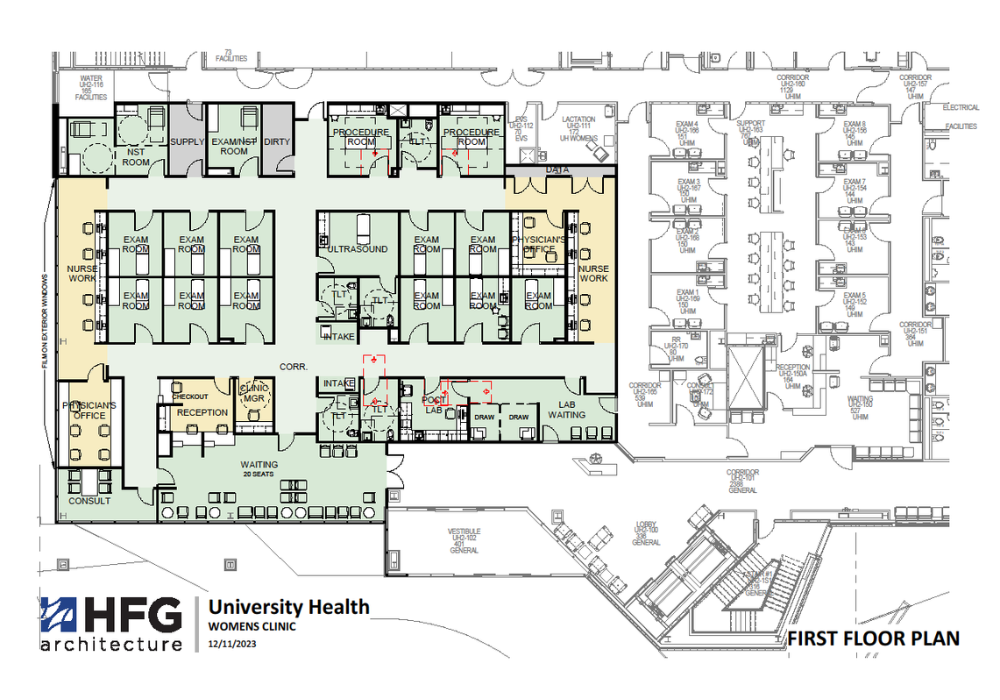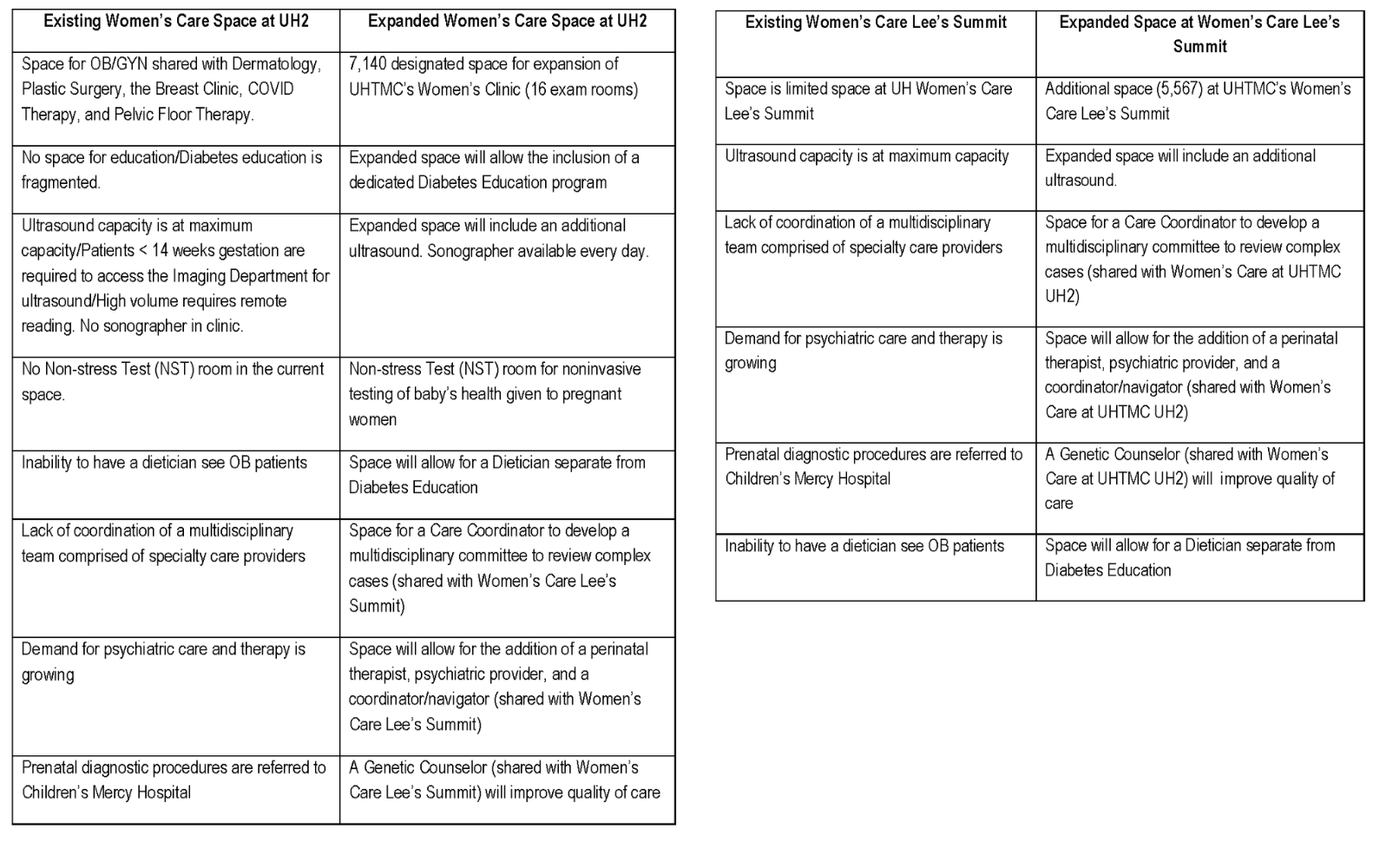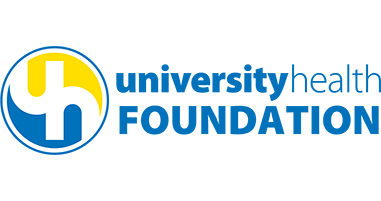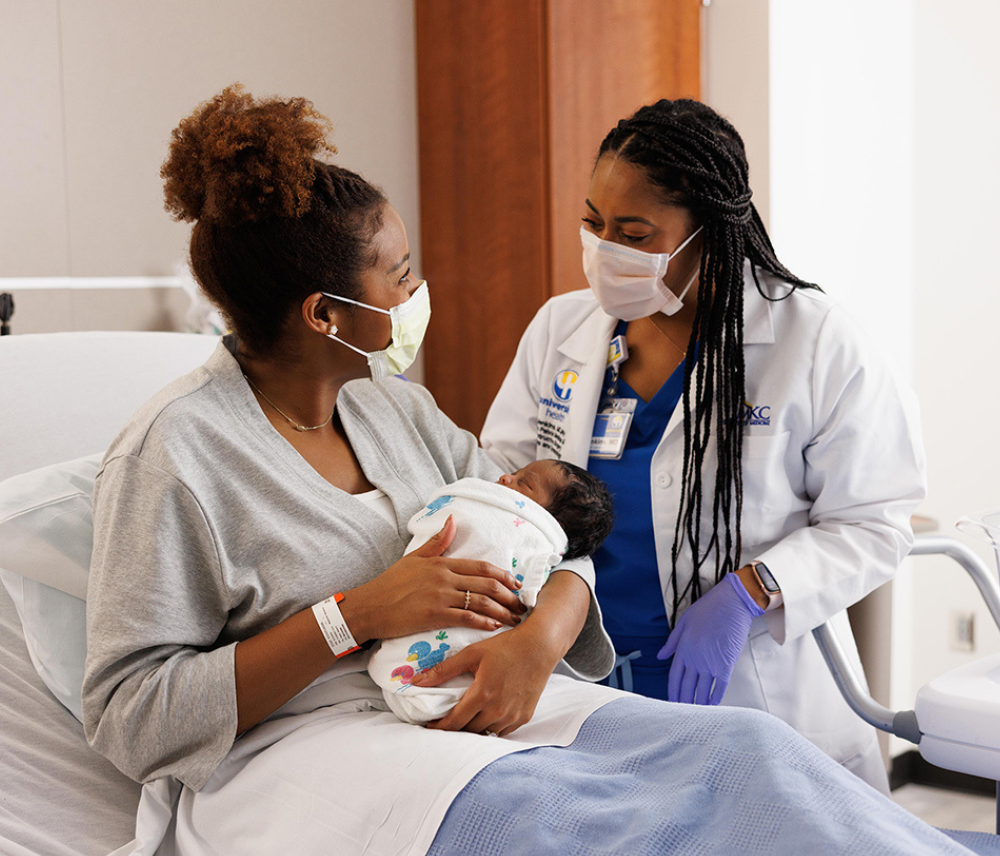
University Health delivers hope.
When LaKesha Wooten became pregnant, she knew her journey to motherhood would not be easy. Her medical history and past pregnancies left her anxious and scared. That is why she trusted University Health, where miracles happen every day. Our high-risk pregnancy specialists gave her the knowledge and expert care she needed throughout her pregnancy. Last year, LaKesha welcomed her baby girl, Malia, to the world.
University Health, the region’s leader in women’s care, including maternal-fetal medicine, brings hope to women like LaKesha. With the best high-risk pregnancy specialists in the area, we are proud of our accomplishments, yet we recognize that provider and programmatic expansion will bring our care to new heights. The Delivering Hope capital campaign will support the growth of Women’s Health at University Health Truman Medical Center (UHTMC) and Women’s Care Lee’s Summit.
Hope for high-hisk mothers
Thanks to the excellent care LaKesha received at University Health, she and Malia are thriving. Unfortunately, maternal and infant health outcomes are worsening in our state. Too many women in Missouri, especially Black women, are dying at a higher rate than their peers across the nation. Last year, 85 women in Missouri lost their lives during and up to one year of pregnancy, placing Missouri 44th in the country for maternal health outcomes. Disparities by race in Missouri are even more discouraging. Black women are three times more likely to die than White women. This stark reality is especially concerning when compared to the U.S. rate. Black women across the nation are 2.5 times more likely to suffer maternal mortality than White women. Low socioeconomic status is also linked to maternal mortality. Pregnancy-related deaths were 2.9 times higher for women covered by Medicaid; preeclampsia and persistent high blood pressure account for 10-15% of deaths.
Babies in our state aren’t faring as well as their peers across the country. In fact, last year the March of Dimes gave Missouri a D- grade for preterm births (births before 37 weeks). Missouri’s rate of 11.3% of babies born earlier than 37 weeks of pregnancy is higher than the U.S. rate of 10.4%. Data showing disparities by race and ethnicity paint a bleaker picture. Black mothers are 1.5 times more likely to give birth prematurely, accounting for a preterm birthrate of 15.5%, followed by American Indian/Alaska Native (11%), and Latino/Hispanic (10.6%), white (10.4%), and Asian/Pacific Islander (10.2%).
The factors contributing to poor maternal health and birth outcomes are multifaceted and layered, including chronic diseases, mental health issues, substance abuse disorders, socioeconomic status, health literacy and barriers to accessing medical care.
Shaping the future for women’s health
Women’s Health is a Center of Excellence for University Health. Last year, we provided women’s care to 11,684 patients at UHTMC through 36,239 visits. UH Women’s Care Lee’s Summit provided care to 6,314 patients through 19,753 patient visits. Combined with UH Lakewood Medical Center (UHLMC) (not part of this project), we provided exceptional care to 19,822 patients across the UH system. Last year, 5,668 women received obstetric care.
Regarding maternal-fetal medicine, UH had more high-risk deliveries than any other hospital in the area. During the last three years, the number has trended upward with increases of 16% and 10% respectively. High-risk stratification is often associated with low income. Sixty-three percent (63%) of patients at UHTMC and 43% receiving care at UH Women’s Care Lee’s Summit have Medicaid, UH financial assistance, or self-pay. UH serves a higher number of patients with these payor sources than any other hospital in the metropolitan area.
We are shaping the future for women, families, and the next generation through cutting-edge medical care—bringing hope to everyone in our community, regardless of the ability to pay. The capital improvements will not only expand our access to the community for high-risk pregnancies, but also will give the community and our UH providers access to genetic counseling, high-risk diabetes education, placenta accreta spectrum, interventional procedures, including amniocentesis, women’s health and mental health services while having the expertise to care for the most critical patients in the region.
Women’s Care at University Health Truman Medical Center
The Delivering Hope campaign will transform unused space in UH2 (2011 Charlotte Street) into a modern space. The additional space will expand our overall women’s care footprint on the UHTMC campus and support expansion of specialty services, including urogynecology, gynecological oncology, and maternal fetal medicine, while increasing access to perinatal ultrasound.

Women’s Care at University Health Lee’s Summit
University Health will also increase space of the UH Women’s Care Lee’s Summit, allowing provider and programmatic expansion in multiple growth areas, as well as increase the volume of perinatal ultrasounds. As we experience growth in the number of high-risk patients, additional space at UH Women’s Care Lee’s Summit (and UH2) will allow us to expand our wraparound approach by adding physicians, providers, and staff support, including behavioral health, genetic counseling, care coordination, case management, and Diabetes care and education.
The program provided at both locations uses a wraparound service approach by having physicians, providers, and staff support all the needs of our high-risk patient population. Side-by-side comparisons of current offerings limited by space constraints and opportunities for growth include:

Join the campaign to deliver hope.
Join the campaign to deliver hope, health and miracles. Every gift and pledge provides:
- Increased patient access to women’s health services
- Increased access to maternal-fetal medicine with provider additions
- Increased maternal-fetal medicine programmatic offerings
- Increased ultrasound capacity
- Increased access to gynecology oncology
To learn more about Delivering Hope Campaign leadership gifts and naming opportunities, please call 816.404.3430.
When you make a major gift in support of University Health, you make a tremendous impact not only on advanced medical care but also on the health of our city. Together, we will transform the health of our community and make Kansas City a stronger, healthier city for generations to come.
View the full “Delivering Hope” Case Statement.

